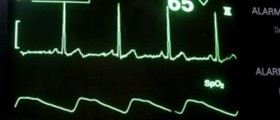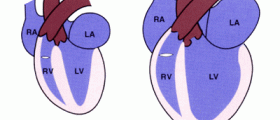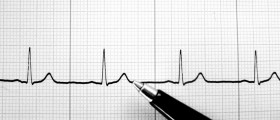
Hyperkalemia
This is one of the more common problems in the America. The type that is usually found in America is mild hyperkalemia, and even though this problem is not very serious, it does not make the treatment unneeded. Treatment is essential and it will eliminate the development of problem. Even death can occur if the potassium levels are extremely high in the bloodstream. If the severe hyperkalemia is not treated, death occurs in 67% of cases.
We have mentioned an increased level of potassium in the bloodstream, which is what hyperkalemia causes. The normal levels of potassium are from 3 to 5 miliequivalents per liter. The first sign of problem starts from 5 to 6 miliequivalents, which is common for mild hyperkalemia, while moderate goes from 6 to 7. The most severe and dangerous is severe hyperkalemia and starts from 7 miliequvalents.
Symptoms of Hyperkalemia
Proper functioning of nerves, heart and muscles is affected by the potassium. It is also very important in the functioning of the skeletal muscle, heart muscle and smooth muscle, since transmitting of the electrical signals is job that potassium performs. Electrical rhythm of the heart is important and potassium is responsible for this. If the level of potassium becomes improper, low or high, problems with this rhythm will occur. As we have said, electrical rhythm of the heart is something that potassium affects. If the problem occurs, this can be changed. EKG alterations can be caused by moderate hyperkalemia, while mild will not have more serious effect. The heart may stop beating if the electrical heart activity is suppressed, which is usually present when patient suffers from severe hyperkalemia. Skeletal muscles can be affected by this condition. The problem with hyperkalemia can lead to muscle paralysis. The cause for this paralysis is still unknown. Many professional think that electrical activity of the muscle is suppressed and this causes the paralysis.
Causes of Hyperkalemia
The most common causes are adrenal gland disease, medications, sifting out of the potassium in the blood circulation and kidney dysfunction. Excretion of the potassium is usually performed by the kidneys, which is why hyperkalemia can occurs if kidneys have a problem. These problems are lupus nephritis, chronic and acute failure of the renal, urinary tract obstructive problems, transplant rejection and glomerulonephritis. Also, medications can cause hyperkalemia when a patient is sensitive to potassium because of some kidney disease. The medications we are talking about include non-steroidal anti-inflammatory drugs, ACE inhibitors and angiotensin II receptor blockers.

















Your thoughts on this
Loading...